Hurricane Buhari, social media war – and three other reasons why PDP states fell to APC
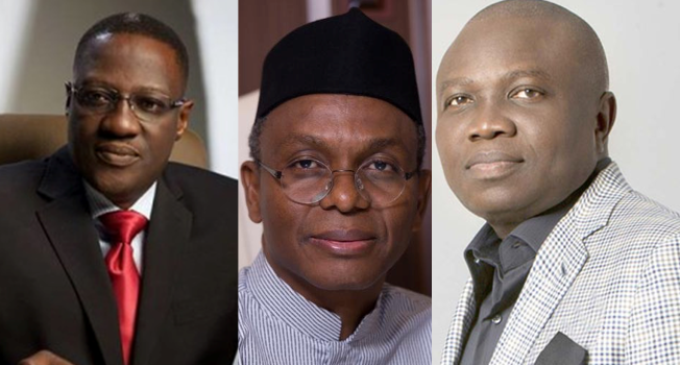
The April 11 governorship and state houses of assembly election across the country has ended in widespread victory for the All Progressives Congress (APC) over the ruling Peoples Democratic Party.
Of the 27 states announced at the time of writing this piece, APC had won in 19 states, while PDP managed to seal eight states. As at Sunday night, APC had won the governorship election in Ogun, Oyo, Lagos, Sokoto, Katsina, Kaduna, Kwara, Kano, Kebbi, Bauchi, Yobe, Adamawa, Benue and Nasarawa. On the other hand, PDP had won Akwa Ibom, Gombe, Enugu and Ebonyi.
Why is this party cruising to victory in its first nationwide gubernatorial campaign? Here are five reasons why:
HURRICANE BUHARI
The emergence of Muhammadu Buhari as president-elect is unarguably the biggest reason for APC’s convincing victory in many states. Since Buhari’s victory at the March 28 presidential election, APC has garnered more reverence among Nigerians. In Lagos, the phenomenon is referred to as “alignment to the centre”; that is, the victorious party at the national level should win in your state if you must “enjoy” federal favours in the coming dispensation. With Buhari, a respected political figure at the centre, clinching victory at the federating units just got a lot easier. Hurricane Buhari is responsible for the overwhelming victories at the state level.
PDP CRISIS AND CHARACTER
Since Buhari’s victory at the federal level, PDP has suffered relegation into the league of opposition parties. Armies of disgruntled and greener-pasture politicians have jumped ship to the APC, leaving the PDP as a rather deserted party. This I-don’t-want-to-deal-with-the-loser attitude has resulted into numerous defeats for the PDP.
Prior to the 2015 elections, PDP had consistently taken Nigerians, even the electorate, for a fool. Although the party chants “power to the people”, it had never seen power as really belonging to the people. However, since the Jonathan-led administration and the Independent National Electoral Commission (INEC) made votes count and given power to the people, the PDP now knows better.
Division in the party also added to its litany of woes. Since the breakaway of five influential PDP governors, the party became weaker, giving a chunk of its strength to the opposition. Save Rivers state, the five governors who left have convincingly delivered massive victory for the APC. In Oyo state, PDP would have stood a chance if it fielded one united mandate, but three of it sons ran for the election on different platforms: Seyi Makinde, Social Democratic Party (SDP); Alao Akala, Labour party (LP); and Teslim Folarin, PDP. Adewolu Ladoja, who was the first runner-up in the race, is also a PDP extract. PDP is the architect of its own fall to APC.
SOCIAL MEDIA
There is a new determinant of the course of elections in Nigeria, and it is the social media. PDP said time and again that “elections are not won on social media”. By now, that notion should be relegated to the confines of 20th-century politics. PDP saw the social media as a house for 15 million Nigerians who do not have PVCs. Doyin Okupe, an aide to President Goodluck Jonathan, once kept the figure of eligible voters on social media at less than 5 million, seeing it as far less than the 68 million voters in the country.
Yes, the number of voters on social media may be less than half the entire voting population, but the platform was instrumental to shaping the minds of those who were not even registered on it. APC, which was the party that took social media seriously, reaped bountifully in due time.
PREPARATION MEETS OPPORTUNITY
In 2011, Bola Tinubu, former governor of Lagos state, supported Goodluck Jonathan for a convincing PDP victory at the federal level, following a failed merger of opposition parties. After the election, the Jagaban of Borgu kingdom went on to institute a merging of opposition parties that became the All Progressives Congress in February 2013. Since then, the party has been preparing for the 2015 elections. From consultations to crisis, to settling crisis, to winning state election in Osun up to the presidential election, the party kept on moving.
The PDP, in its wildest dreams, did not expect such a formidable force. While it governed, it was hardly prepared for the 2015 general election. The party thought it would be business as usual. When APC’s preparation met the opportunity to take power, nothing could obstruct its journey along the path of victory.
THE CHANGE MANTRA
It was Heraclitus, the Greek philosopher, who said: “Change is the only constant in life.” No matter who you are and what you do, there’s a yearning for positive change. Nigeria, projected as one of the faster growing economies in the world, was also regarded as Africa’s worst performer of 2015. For over 200 days, more than 200 Nigerian school girls were abducted without concrete hope of return. Insurgency was consistently threatening to re-draw the Nigerian map by claiming the northeast. From all of these and many more, Nigerians wanted to change, and APC offered to change all.


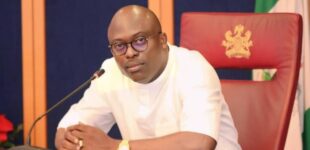
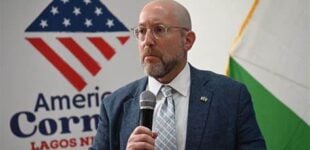
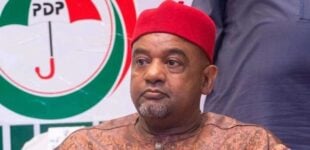
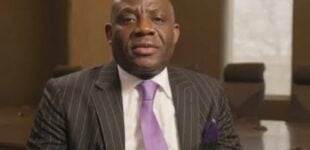
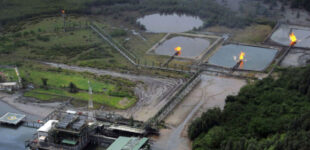

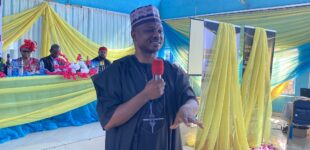
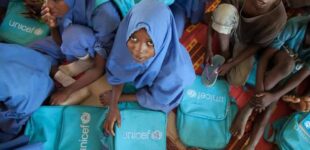
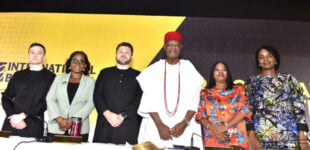

Mimi by now we expect you should have gone over the PDP loss at the poll. My dear PDP took Nigerians for granted thinking money could always do it. Sometimes your resources will fail you, and PDP’s case it failed them woefully. Please see this election as the wish of the larger masses.